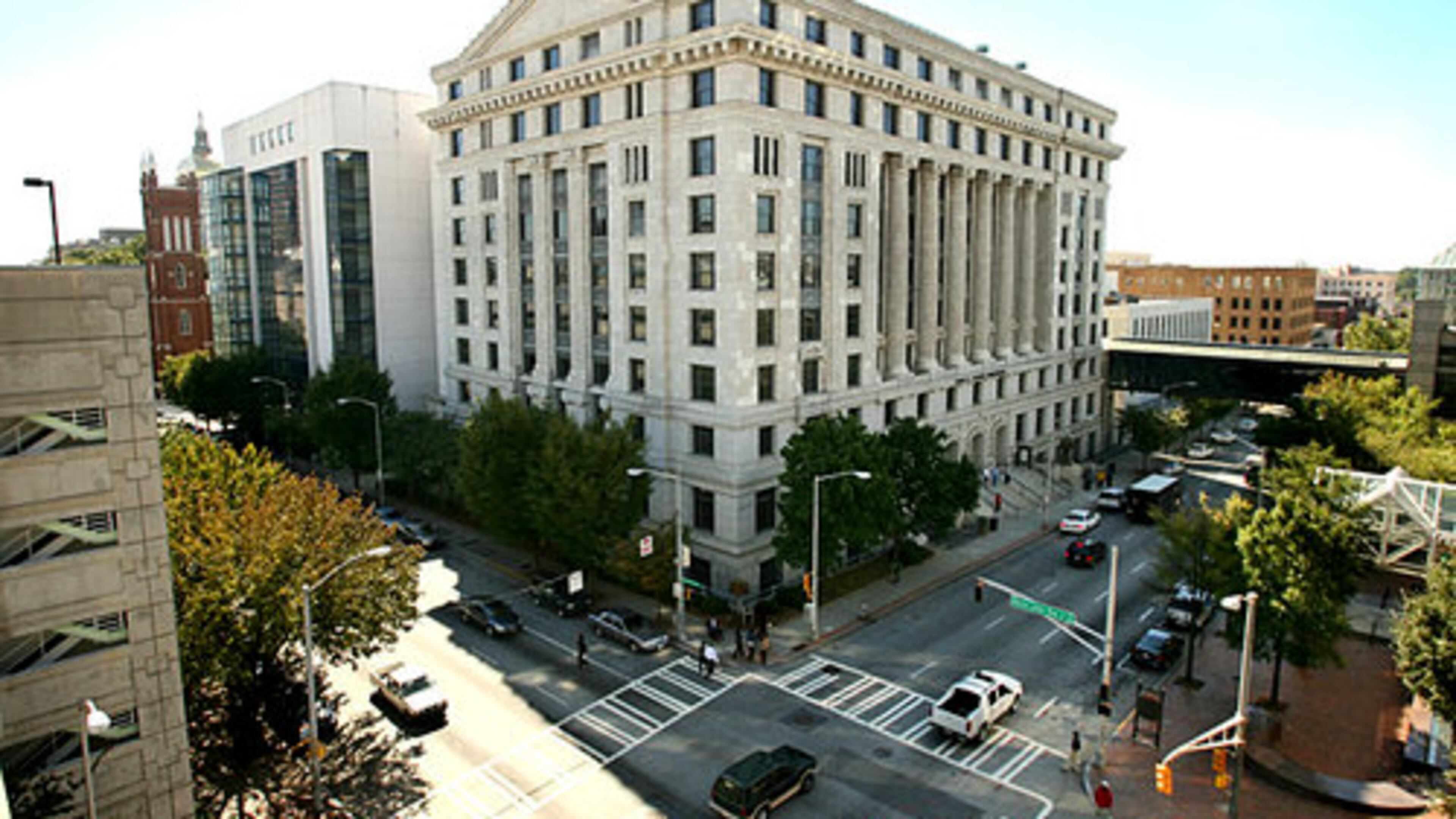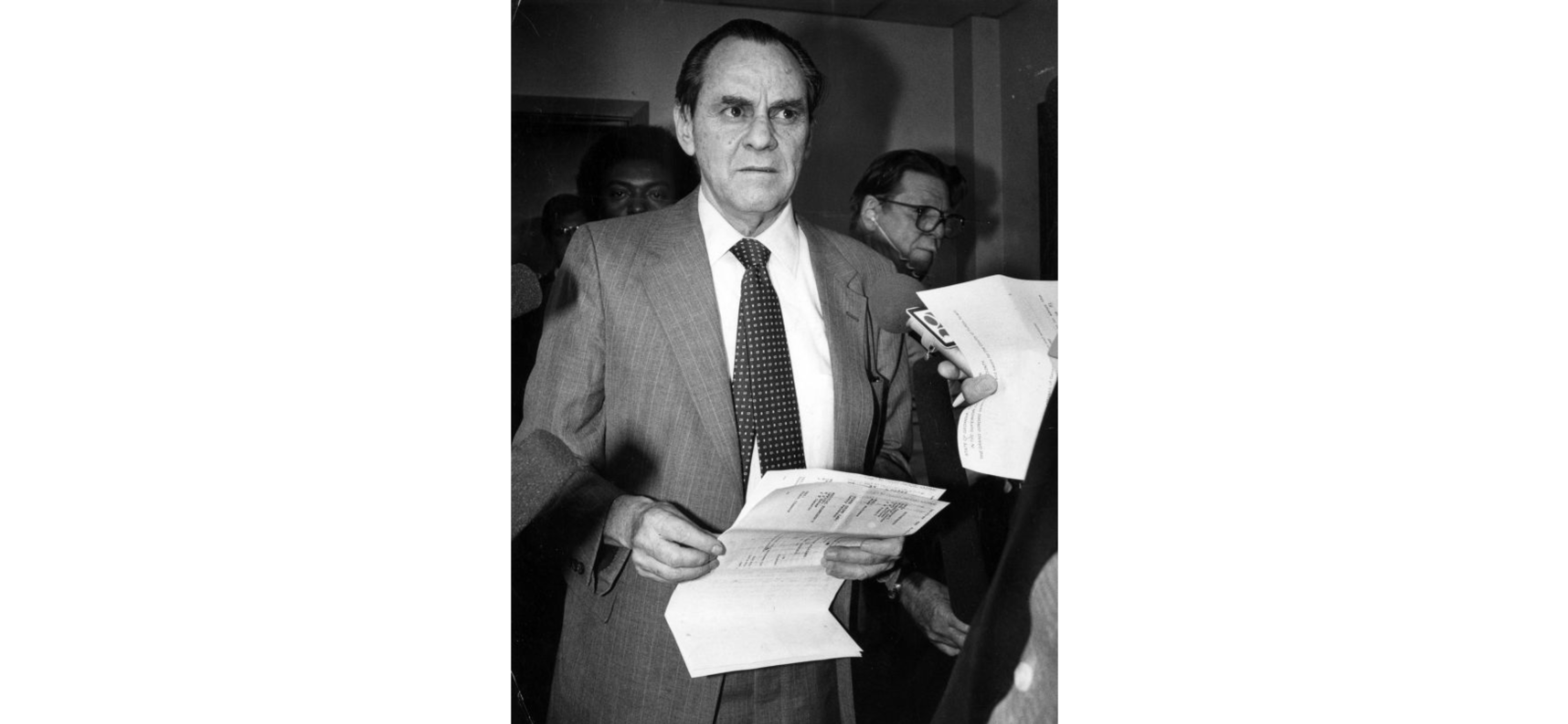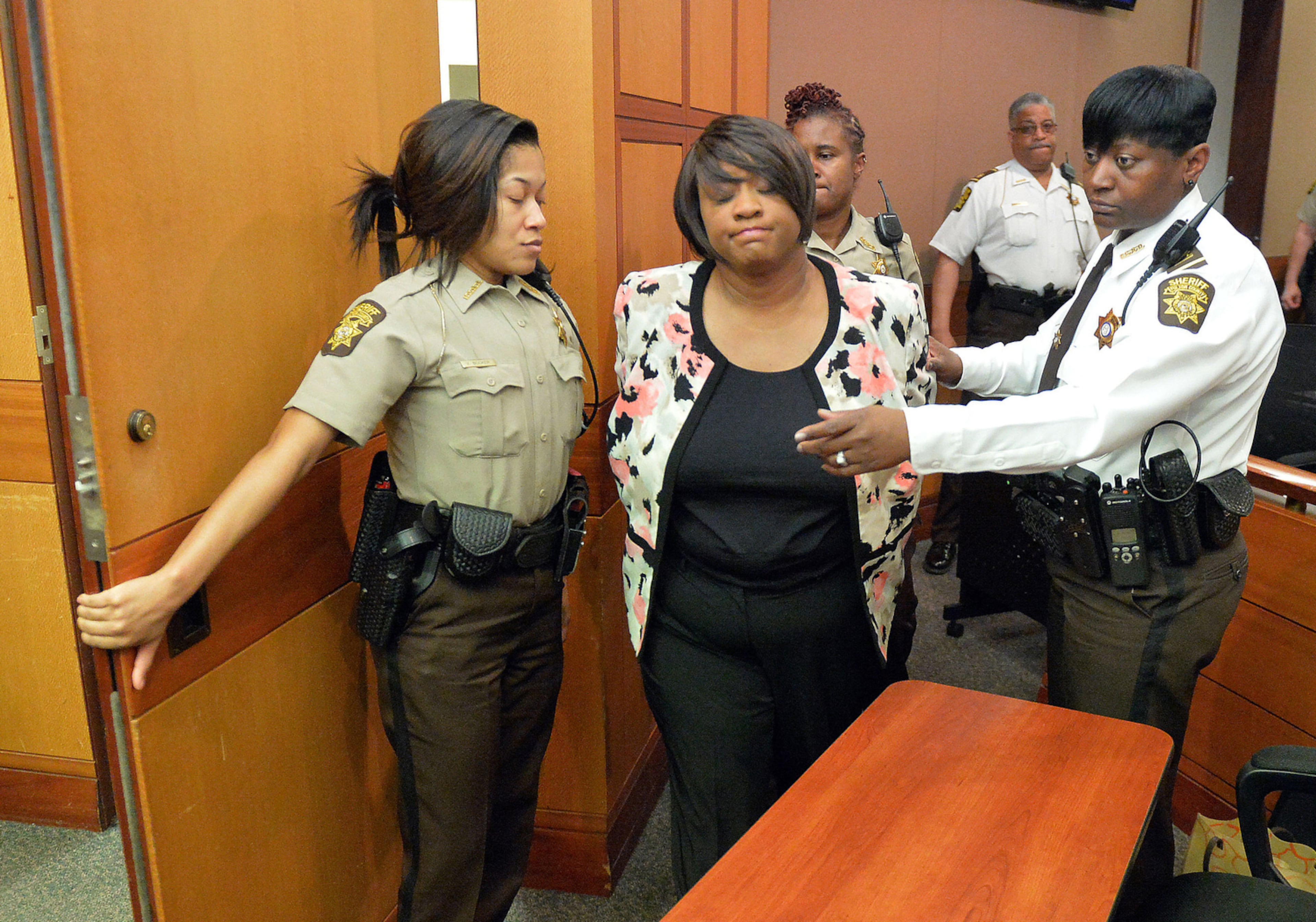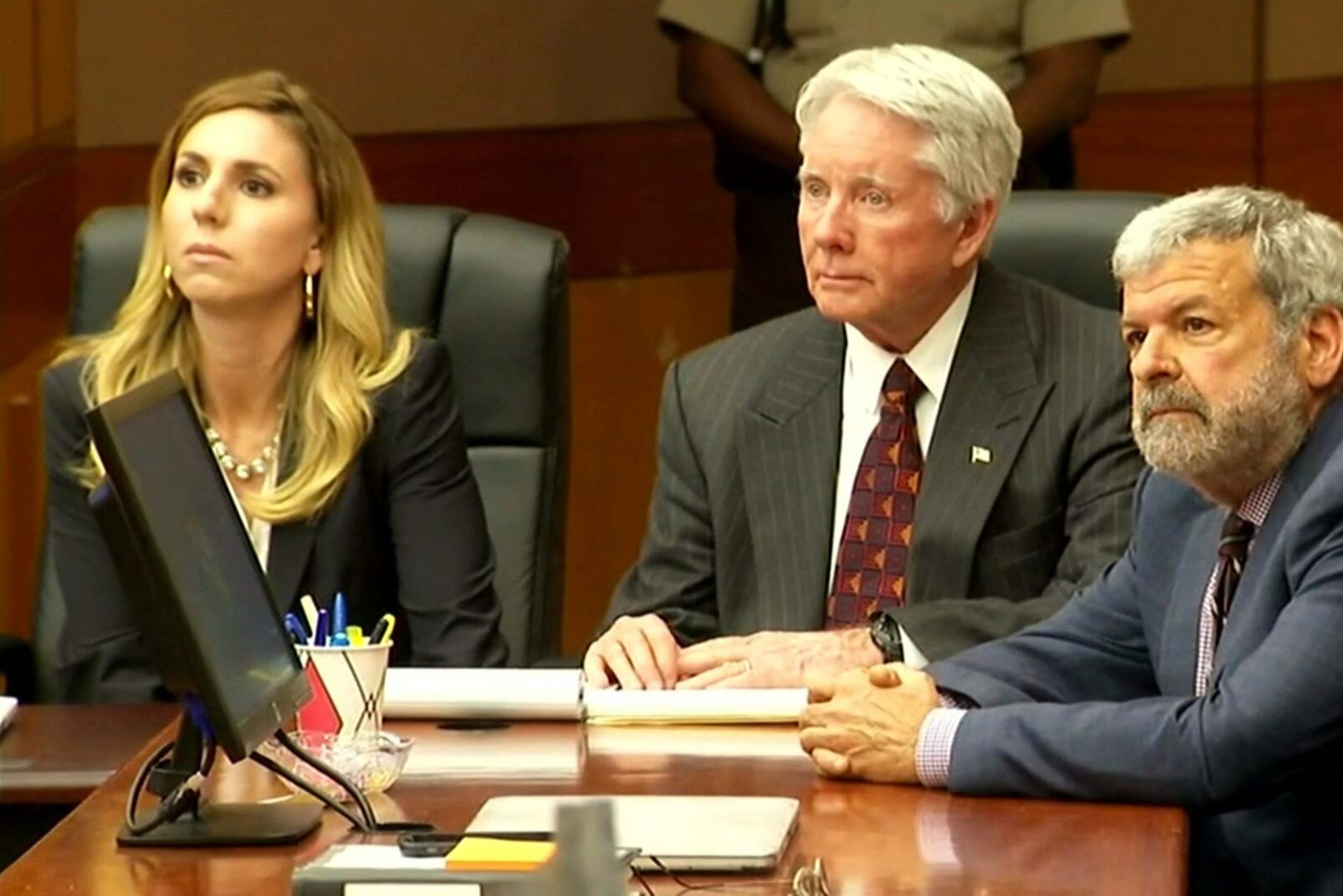Fulton courthouse has seen its share of big cases

The Fulton County courthouse has been home to some of the most sensational trials in Georgia history. Located on Pryor Street in downtown Atlanta, it was built between 1911 and 1914 and is on the National Register of Historic Places.
The courthouse is named after Lewis R. Slaton, who was Fulton’s district attorney from 1965 to 1996. Slaton, who died in 2002, hired the office’s first Black prosecutor.

Among the high-profile cases at the courthouse:
- ALBERTA KING: Marcus Wayne Chenault was sentenced to die in the electric chair on Sept. 12, 1974, for the murder of the Rev. Martin Luther King Jr. ‘s mother, Alberta. Chenault had pulled out a gun and began shooting wildly after entering Ebenezer Baptist Church, where the 70-year-old King was fatally shot while sitting at the church’s new organ. Chenault would later be sentenced to life in prison without parole after King’s family said they were opposed to capital punishment.

- WAYNE WILLIAMS: On Feb. 27, 1982, after 11 hours of jury deliberation, Williams was found guilty of murdering Nathaniel Carter and Jimmy Ray Payne. They were among the more than 20 victims — Black children, teens and adults — in what became known as the Atlanta Child Murders case. The mounting deaths brought panic across Atlanta and led the Reagan Administration to lend support from the FBI and Justice Department. Williams was arrested June 21, 1981, almost two years after the bodies of the first two victims — Edward Hope Smith, 14, and Alfred Evans, 13 — were found in a vacant lot.

- RAY LEWIS: The Baltimore Ravens linebacker, along with two others, were charged with murder in 2000 after a night of post-Super Bowl partying in Buckhead turned deadly. Mid-trial, Lewis pleaded guilty to a misdemeanor charge of obstruction of justice and received a one-year probation sentence. His co defendants, Joseph Sweeting and Reginald Oakley, were acquitted on June 12, 2000, in the stabbing deaths of Jacinth Baker and Richard Lollar. Lewis would go on to be named the MVP of the Super Bowl in Tampa the following season with his two defense attorneys — Ed Garland and Don Samuel — watching the game in seats at the 50-yard line.

- JAMIL ABDULLAH AL AMIN: The West End Muslim cleric was found guilty on March 9, 2002 of the murder of Fulton County Sheriff’s Deputy Ricky Kinchen. Al-Amin, once known as Black militant H. Rap Brown, also was found guilty of shooting Kinchen’s partner, Deputy Aldranon English, who recovered from his wounds. After a sentencing hearing, the jury declined to give Al-Amin the death penalty, as requested by prosecutors.

- APS CHEATING SCANDAL: Eleven Atlanta Public Schools teachers and administrators were found guilty April 1, 2015, in the largest test-cheating scandal in the nation. One teacher, Dessa Curb, was acquitted of all charges. Twenty-one educators had previously pleaded guilty in the scandal. Former Superintendent Beverly Hall was among those indicted of racketeering, but she died of breast cancer before she could stand trial.

- CLAUD “TEX” McIVER: The Atlanta lawyer was found guilty on April 23, 2018, of felony murder for fatally shooting his wife Diane in the back as they were being driven near Piedmont Park to their home in Buckhead. The Georgia Supreme Court would later overturn McIver’s murder conviction and award him a new trial, which is scheduled to be held in September.

BRIAN NICHOLS: The Fulton courthouse was the scene of tragedy on March 11, 2005, when Nichols, on trial for rape and other felonies, overpowered Deputy Cynthia Hill and grabbed her gun. He then walked into the courtroom of Rowland Barnes, the judge overseeing his trial, and shot and killed Barnes and his court reporter Julie Ann Brandau. Nichols ran from the courthouse, fatally shooting Sgt. Hoyt Teasley who had tried to stop him. Nichols later entered a home under construction in Buckhead, where he shot and killed federal immigration and customs agent David Wilhelm.
Nichols would stand trial for the murders and be found guilty on Nov. 7, 2008. But because the jury could not reach unanimity on a death sentence, deadlocking at 9-3 in favor, Nichols was sentenced to life in prison without parole.



